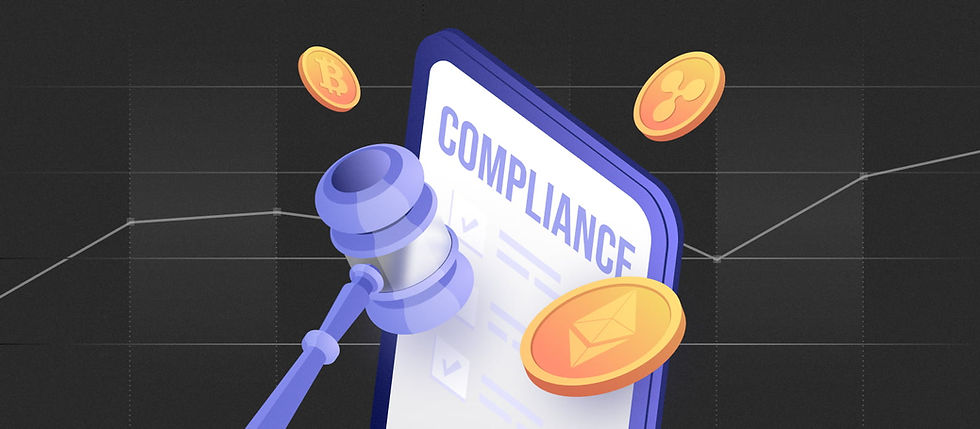Key Compliance Requirements Under the 2025 SEC CASP Rules in the Philippines
- Yasser Aureada

- Sep 18, 2025
- 2 min read

Introduction
In 2025, the Securities and Exchange Commission (SEC) issued the Crypto-Asset Service Provider (CASP) Rules to regulate fintech and crypto businesses in the Philippines. These rules aim to protect investors while strengthening trust in the crypto sector.
If you are a fintech startup, crypto investor, or compliance officer, here’s what you need to know about the new requirements.
Licensing and Registration
All businesses offering crypto-asset services in the Philippines must:
Register as a corporation.
Secure licenses from the SEC and other relevant regulators.(This covers exchanges, brokers, and platforms.)
If you use outside marketers or influencers, they must be:
Formally authorized.
Disclosed to the SEC.
Even if you outsource marketing, your company remains fully responsible for their actions.
Disclosure Rules for Public Offerings
Before offering crypto-assets to the public, you must file a disclosure document with the SEC at least 30 days in advance.
This document must also be published on your website and official channels. It should include:
Details of the issuer and offeror.
Key features and risks of the crypto-asset.
The underlying technology and purpose.
Clear warnings that investors may lose money and that the SEC has not approved the offering.
Think of this as your “prospectus” for token sales—complete, transparent, and investor-friendly.
Marketing Restrictions
Marketing is tightly regulated. Only licensed corporations can promote crypto-assets or services.
CASPs may hire outside marketers, but these must be reported to the SEC.
All marketing materials must:
Use clear, non-misleading language.
Include the SEC registration number.
Fully disclose risks.
Scope of marketing: ads, social media posts, blogs, videos, events, airdrops, and even “educational” content if it encourages investment.
If in doubt, treat your activity as regulated marketing.
AML Obligations and SEC Oversight
CASPs are now considered covered persons under the Anti-Money Laundering Act (AMLA).
You must implement strict:
Know-Your-Customer (KYC) processes.
Monitoring systems, similar to banks.
The SEC has broad inspection powers:
They can audit operations, request records, and conduct site visits.
Refusing or obstructing these checks can lead to suspension or even cancellation of your registration.
Sanctions and Penalties
The SEC can impose:
Fines and penalties for violations.
Suspension or revocation of licenses.
Cease-and-desist orders that immediately stop operations if fraud or investor harm is suspected.
In serious cases, corporate officers may also face personal liability, including imprisonment.
Conclusion
The SEC CASP Rules Philippines 2025 set a new compliance standard for the crypto industry. Startups and established players must now treat regulatory compliance as seriously as innovation.
At Aureada CPA Law Firm, a trusted crypto law firm in the Philippines, we help fintech companies and crypto businesses navigate these rules. From licensing to marketing compliance and AML programs, we provide expert legal guidance so you can focus on growth while staying fully compliant.
Contact us today to safeguard your crypto venture under the 2025 SEC CASP Rules.



Comments